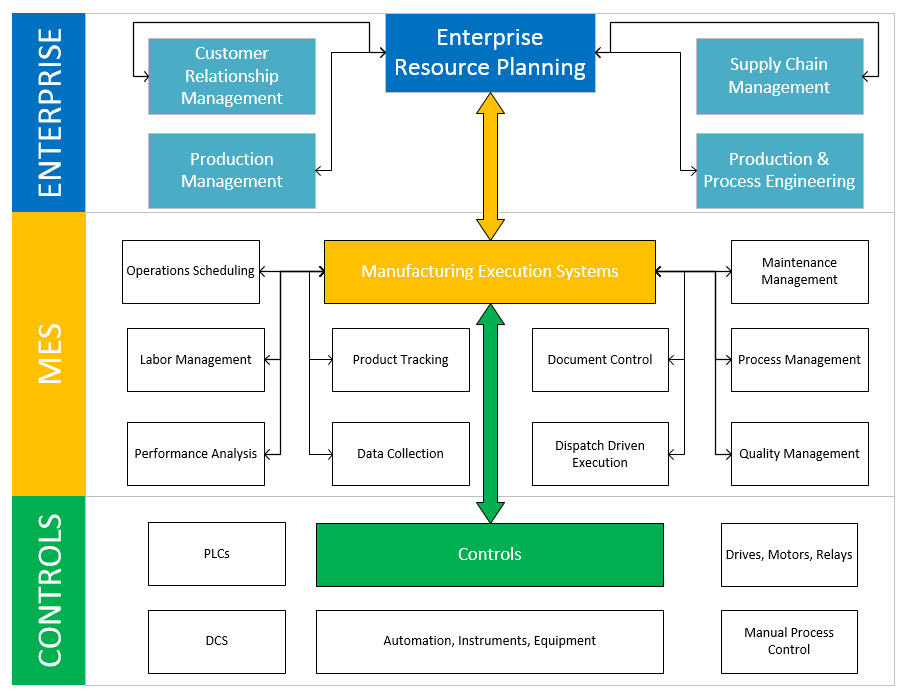Plan. Execute. Control. Complete.
What is MES?
-
MES stands for Manufacturing Execution Systems
- Sometimes referred to as MOM or Manufacturing Operations Management
- Shop Floor Production System
- And many others
-
MES enables optimization of production activities from order launch to finished goods
-
MES guides, initiates, responds to and reports on plant activities as they occur
-
This rapid response to changing conditions coupled with a focus on reducing non-value added activities drives effective plant operations and processes
-
MES improves the return on operational assets as well as on-time delivery, inventory turns, gross margin, and cash flow performance
-
MES provides mission critical information about production activities across the enterprise and supply chain via bi-directional communications
What are MES Applications?
(and where does it fit in my plant)

ERP “why” – MES “how to”
-
ERP primarily supports strategic decisions
-
MES supports operational decisions
- Those who know “how to” make things, always works for those who know “why”
- But those who know “why,” must rely on people who know “how to” to turn their decisions into reality
ERP is not designed to Reach Shop or Plant Floor
-
No machine that produces a piece per cycle probably will ever communicate to the ERP that it completed the cycle
-
Shop Floor MES production systems and ERP systems operate on different interpretations of “real time.”
-
ERP is focused on the strategic management of the business
-
MES is associated with the punctual execution of the process
-
ERP and MES systems must communicate and act as a seamless whole to allow the manufacturing industry to meet dynamic needs coming from:
- Customers
- Regulators
- Suppliers
- And even internal staff
MES Benefits
-
Increases operational excellence
-
Improves asset utilization and management of assets
-
Reduces manufacturing cycle times
-
Reduces work in process
-
Reduces paperwork between shifts
-
Reduces lead times
-
Improves product quality
-
Eliminates lost paperwork
-
Empowers plant operations staff
-
MES functionality can be implemented between plants with minor “tweaks” for each specific plant site thus lowering costs across the board
Data Flow – ERP and MES

ERP
Forecasting
Costing
High Level Production Planning
Product Definition
Process Definition
Human Resources
Inventory Management
Purchasing
Distribution

MES
Resource Allocation/Status
Operations Scheduling
Production Dispatching
Document Control
Data Collection
Labor Management
WIP Status and Traceability
Quality Management
Performance Analysis
Product Tracking
Maintenance
Process Instructions
Visual Work Instructions

